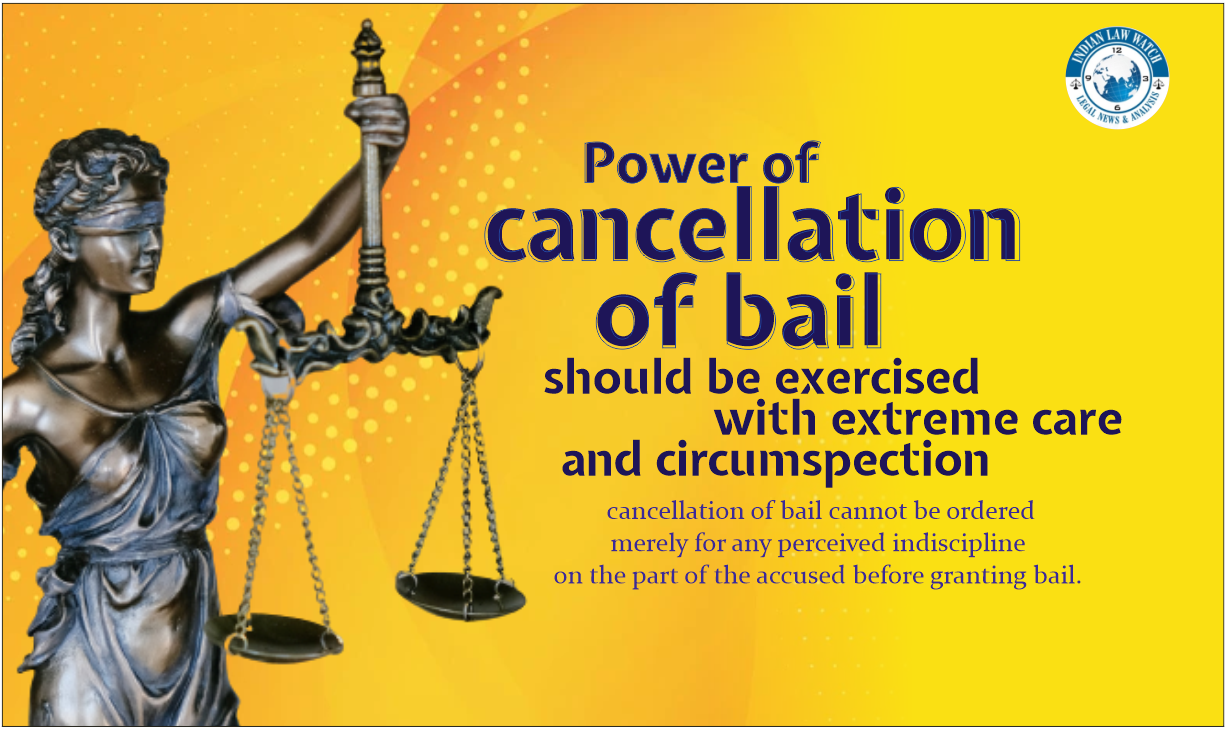

The top court observed that the power of cancellation of bail should be exercised with extreme care and circumspection
The Supreme Court recently held that cancellation of bail cannot be ordered merely for any perceived indiscipline on the part of the accused before granting bail.
“In other words, the powers of cancellation of bail cannot be approached as it is for disciplinary proceedings against the accused and in fact, in a case where bail has already been granted, it’s upsetting under Section 439(2) CrPC is envisaged only in such cases where the liberty of the accused is going to be counteracting the requirements of a proper trial of the criminal case,” held a bench of Justices Dinesh Maheshwari and Sudhanshu Dhulia.



-
The court further observed that the power of cancellation of bail should be exercised with extreme care and circumspection.
-
These observations were made by the top court while setting aside an order whereby the bail granted to the mother-in-law of the deceased in a dowry death case was cancelled by the high court.
-
In the case before the court, the daughter-in-law of the appellant-accused had died by suicide and a charge sheet for serious offence including section 304B IPC had been filed. The high court had also taken note of the unavailability of the accused to all the processes of law until the date of surrender/arrest.
-
But, in the peculiar circumstances of the case, the top court bench noted, “particularly for the fact that the deceased left a minor child and none except the appellant was available in the family to look after the child, it was equally difficult to say that the appellant had been an absconder or a fugitive who had been intentionally running away from the process of law”.
-
Very cogent and overwhelming circumstances or grounds are required to cancel the bail already granted, said the Supreme Court.
-
It further observed that ordinarily, unless a strong case based on any supervening event is made out, an order granting bail is not to be lightly interfered with under section 439(2) CrPC.
Source: News18





